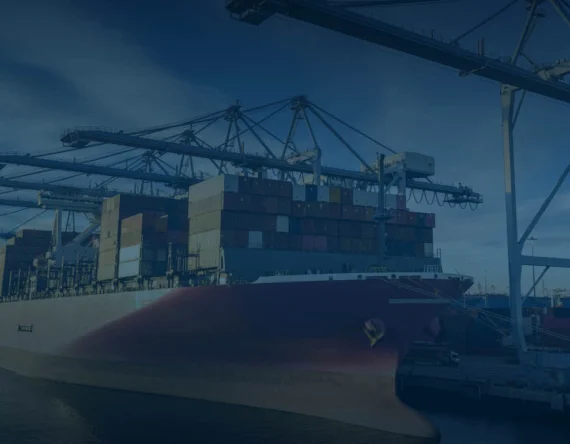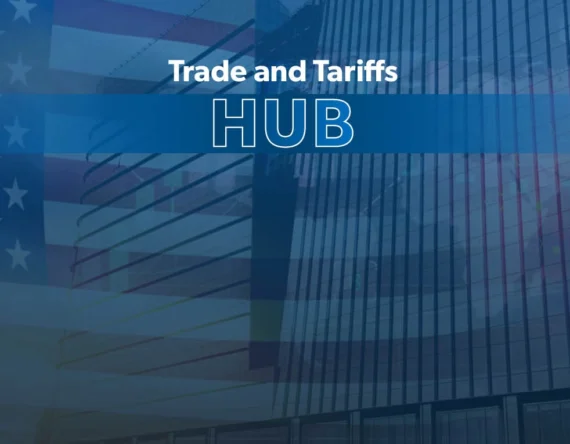What Incoterms Are and Are Not
Incoterms are contract terms. In a nutshell, they determine who is arranging for and paying for freight, as well as the point at which the risk of loss passes from seller to buyer.
Incoterms are not government regulations, nor do they convey title to goods. Incoterms do not address liabilities that arise from shipping incidents, force majeure, or consequences of delay. Moreover, Incoterms do not encompass all activities and services that may be required for a given sales contract.
Relevance to Tariffs
Buyers need to understand Incoterms because they dictate more than just who pays the freight—the terms impact who carries the legal, financial, and compliance risks throughout the transaction. Moreover, accounting processes rely on Incoterms to assess when a seller can record revenue, and a buyer has ownership of inventory.
The choice of Incoterm defines who is responsible for customs clearance, tariff calculation, insurance, and even the risk of loss or damage in transit. A buyer who misunderstands the term can find themselves unexpectedly liable for unpaid duties, delays at the border, or penalties for inaccurate tariff reporting—even if the seller made the mistake. In today’s heightened enforcement environment, knowing how Incoterms allocate responsibilities is essential to protect margins, manage compliance obligations, and avoid hidden costs that can turn a profitable deal into a loss.
When the Buyer Controls the Freight
EXW stands for Ex-Works, placing the least amount of responsibility and risk on the seller and the most on the buyer. The seller’s sole responsibility is to make the goods available at their premises (such as a factory or warehouse). At the same time, the buyer assumes all costs and responsibilities related to transportation, loading, and customs clearance for export and import.
EXW is an impractical term for almost all buyers and poses significant risks to both parties, including:
- Safety risks and liabilities arising from the seller permitting the buyer to enter premises and using the buyer’s equipment to pull inventory and load goods.
- Requiring the buyer to perform all export formalities in a foreign country, including obtaining permits and paying taxes due at export, such as VAT.
- Passing risk of loss to the buyer while the goods are in the seller’s premises.
Buyers’ other options to control the freight are a set of “F” terms: FCA (Free Carrier), FAS (Free Alongside Ship), and FOB (Free On Board). Of these, FCA (Free Carrier) is designed explicitly for multi-modal containerized freight. The other two terms, FAS and FOB , are intended for waterborne bulk or breakbulk freight. They are not suitable for multi-modal shipping, and should not be used for containerized freight,
Under FCA, the seller delivers the goods onto the buyer’s carrier’s vehicle at the seller’s premises, at an intermediate point between the seller’s premises (e.g., a warehouse), or the departure port, typically a container yard. Risk of loss occurs upon delivery of the goods.
When The Seller Controls the Freight
Incoterms use “C” and “D” terms when the seller arranges and pays for freight under two sets of terms (“C” terms and “D” terms), handles export formalities, and pays export taxes. The options for multi-modal containerized freight terms when moving goods to a named destination include CPT (Carriage Paid To), CIP (Carriage and Insurance Paid To), DAP (Deliver at Place), DPU (Delivered at Place Unloaded), and the infamous DDP (Delivered Duty Paid).
There are too many details about the seller’s freight terms to cover here. The principal distinction is that the buyer incurs risk of loss during transport under “C” terms; under “D” terms, the seller incurs risk of loss during transport.
When The Buyer Does Not Want to Arrange for Freight
Buyers lacking expertise in cross-border shipping often prefer to purchase under delivered (“D”) terms. The best options in these circumstances are DAP (delivered at buyer’s premises not unloaded) or DPU (delivered at buyer’s premises unloaded). Both of these terms require the buyer to perform all import formalities.
DDP (delivered duty paid at buyer’s premises NOT unloaded) has some practical limitations for sellers regarding legally complying with import formalities and other tax payments in a foreign country. It is important for buyers to have a thorough understanding of their counterparty’s activities, compliance processes, and trustworthiness before accepting DDP terms.
Converting Non-Standard Freight Terms Into Incoterms
Buyers may encounter U.S. companies using freight terms that are not well-defined and are mostly obsolete. The table below converts certain of these terms into Incoterms:
| “Non-standard” U.S. Shipping Term | Scenario | Relevant Incoterm |
| F.O.B. Origin: Freight Collect | The seller loads the goods at their premises; the buyer pays the freight and assumes the risk of loss when goods are loaded. | FCA |
| F.O.B. Origin: Freight Prepaid | Seller loads goods at seller’s premises and pays freight to the destination. The buyer assumes the risk of loss at the load point. | CPT |
| F.O.B. Destination: Freight Prepaid | The seller loads the goods, pays the freight to the destination, and bears the risk of loss during transport. | DAP |
Buyers need to be aware of Incoterms that impact compliance and to avoid fines and penalties.
Key takeaways to remember:
- Beware of “Duty-free” DDP shipments as they command CBP and DOJ scrutiny.
- Know your Incoterms® and seek training.
- Conduct thorough due diligence on brokers, agents, and freight forwarders.
- Demand complete visibility of transaction details.
- Ensure that accounting is aligned with trade control on the selected Incoterm.
- Seek guidance from compliance professionals and legal counsel.
Reach out to Jonny Frank or Jerry McAdams to discuss these topics and how StoneTurn can help.
To receive StoneTurn Insights, sign up for our newsletter.








